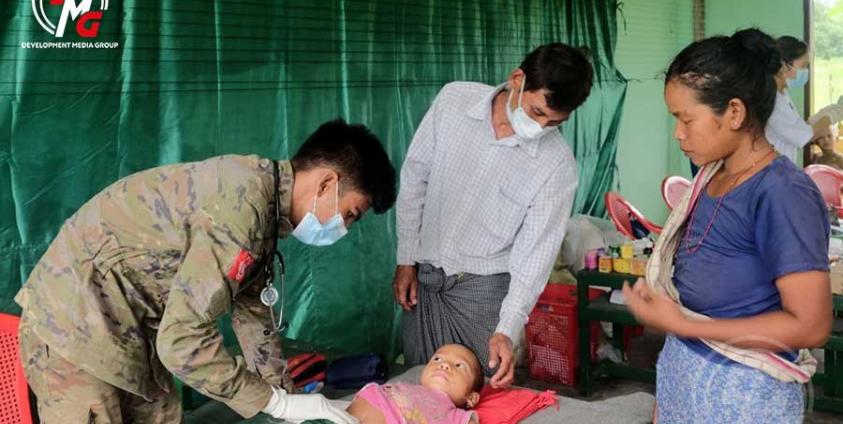Junta roadblocks stopping the distribution of medicine in Rakhine State have led to at least 10 deaths in various Rakhine State townships.
Residents are also facing difficulties travelling to get treatment because their movement is being restricted by junta roadblocks.
DMG has documented a total of nine deaths due to a lack of normally available medicine. Five were in Ponnagyun Township, two in Pauktaw Township, and one each in Kyaukpyu and Ramree Townships.
A man from Sarpyin Village, Pauktaw Township, died during the second week of August because he could not obtain medication that he regularly needed to take to treat his liver disease.
One of his family members said: “He had received medical treatment in Yangon City before the clashes started. The doctor prescribed a six-month supply of medication and said he would need to return for a follow-up after six months. Due to the fighting, he couldn't travel to Yangon, and there was no medication available here, which led to his death.”
A woman from Mingan Village in Kyaukpyu Township died because she could not get the necessary medication to treat the long-term illness she was suffering from, according to other villagers.
One said: “Medicine shortages are occurring because transportation of medicines has been restricted. In Marazaing, there is no cottage hospital or doctors available. It takes about an hour and a half to go to Kyaukpyu town by boat. Now, travelling to Kyaukpyu is impossible, and she died needlessly."
There are also medicine shortages on Saku Island in Ramree Township.
Though there are open hospitals in junta-controlled townships such as Sittwe, Ann, Kyaukpyu, Gwa, and Munaung, residents are still struggling with severe health issues due to shortages of medicine and staff, as many healthcare workers have been displaced by fighting.
In Arakan Army (AA) controlled areas hospitals and clinics have been opened but many residents are scared to visit them, due to ongoing airstrikes by the military junta.
Since the February 2021 coup, the junta's strategy of dividing and isolating areas has led to severe suffering for Rakhine State residents, who are facing shortages of goods, food, and medicine.








